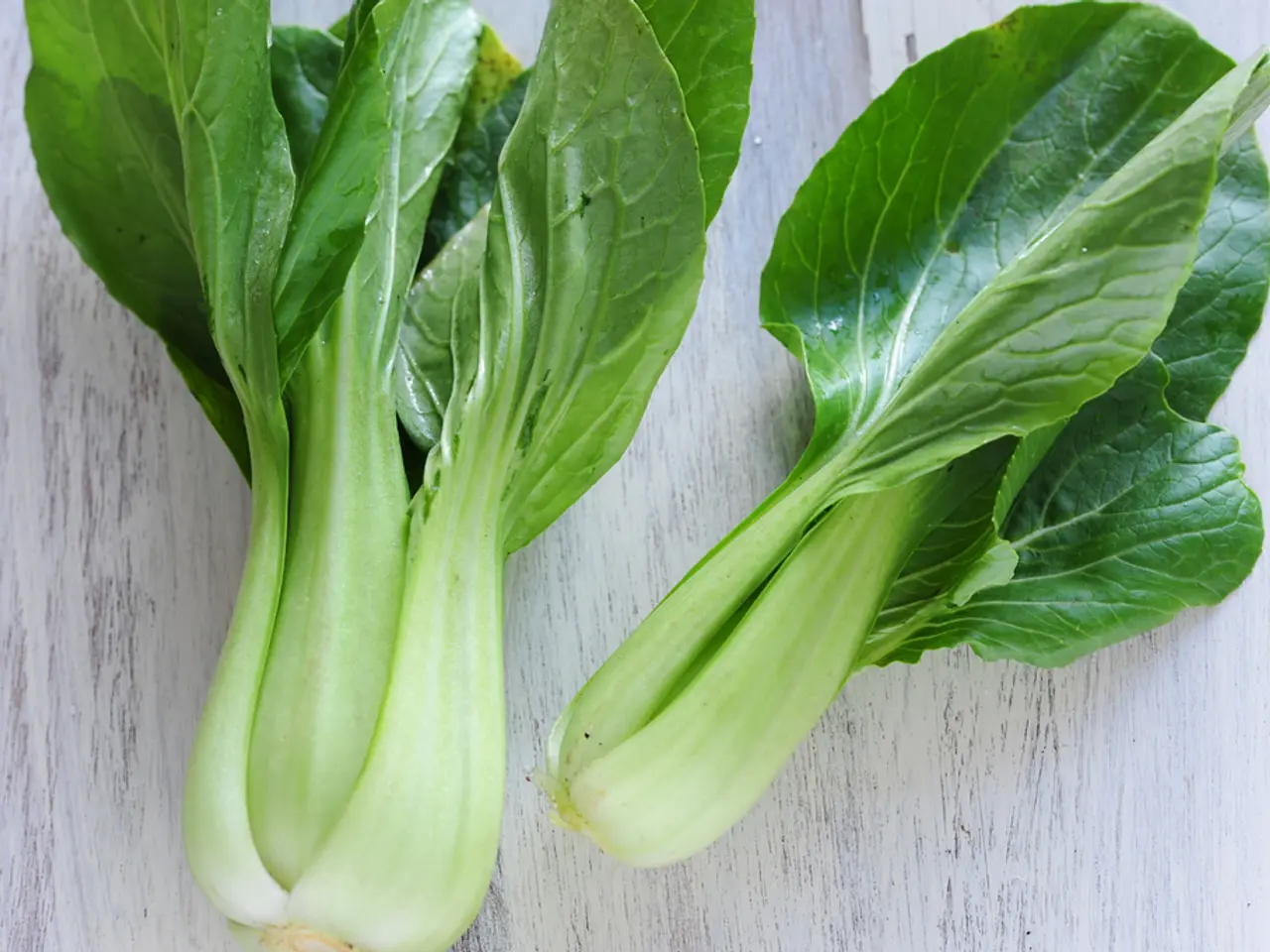Prevention of Lethal Arterial Disease in Women Via Vitamins
Older women can significantly benefit from increasing their daily intake of Vitamin K1, a vital nutrient found abundantly in leafy green and cruciferous vegetables. According to a study conducted at Edith Cowan University in Australia, eating an extra cup of such vegetables daily could potentially save lives by reducing the risk of atherosclerotic vascular diseases (ASVD).
The study, which focused on older women, aged 75 on average, revealed that those with higher Vitamin K1 intake had less thickening of neck blood vessels, a sign of reduced atherosclerosis. Over a period of 14.5 years, these women experienced fewer atherosclerotic events. This suggests that boosting Vitamin K1 intake could be a practical dietary approach to supporting cardiovascular health in aging populations.
Vitamin K1 plays a crucial role in activating proteins like Matrix Gla-protein (MGP), which help keep calcium out of the arteries and in the bones. This prevents arterial stiffening and promotes vascular health. While Vitamin K1 does not directly lower cholesterol, its role in preventing arterial calcification indirectly supports cardiovascular health by maintaining proper blood flow and reducing risks from cholesterol-laden plaques.
In the U.S., the recommended daily intake of Vitamin K1 for adult females is 90mcg. However, in Australia and New Zealand, the recommended intake is 60mcg. Foods rich in Vitamin K1 include half a cup of cooked cabbage (82mcg), a cup of raw spinach (145mcg), a cup of raw kale (472mcg), and half a cup of cooked Brussels sprouts (109mcg). Half a cup of cooked broccoli provides 110mcg of Vitamin K1.
In addition to cardiovascular benefits, Vitamin K1 contributes to musculoskeletal health, which is essential for older adults to maintain bone strength and mobility. Women with the highest Vitamin K1 intake (120mcg) had a 43% lower risk of dying from ASVD.
In summary, higher Vitamin K1 intake through leafy greens reduces artery calcification and thickening, leading to lower risks of atherosclerotic vascular diseases and related heart events in older women. This nutrient supports proteins that prevent calcium buildup in arteries, indirectly helping maintain heart and blood vessel flexibility. It also benefits bone health in aging individuals. The evidence underscores the value of including at least a cup and a half of Vitamin K1-rich vegetables daily to promote vascular and heart health, especially in older women.
- Embracing a healthy-diets rich in leafy greens, especially as we age, could potentially reduce the risk of atherosclerotic vascular diseases (ASVD) due to the high Vitamin K1 content in these vegetables.
- Science suggests that older women, in particular, might benefit from increased Vitamin K1 intake through nutrition, as this nutrient has been associated with fewer atherosclerotic events and less thickening of neck blood vessels.
- The role of Vitamin K1 in maintaining cardiovascular health extends beyond its impact on cholesterol levels, as it helps prevent arterial calcification and supports proper blood flow by activating proteins like Matrix Gla-protein (MGP).
- By consuming foods rich in Vitamin K1, such as spinach, kale, Brussels sprouts, and broccoli, women can not only protect their heart health but also contribute to their own women's health and musculoskeletal health, helping maintain bone strength and mobility.
- As research continues to highlight the importance of this vital nutrient in the context of health-and-wellness, it is encouraging to note that increasing Vitamin K1 intake through dietary adjustments could be a practical approach to improving health outcomes in aging populations, particularly for older women.




